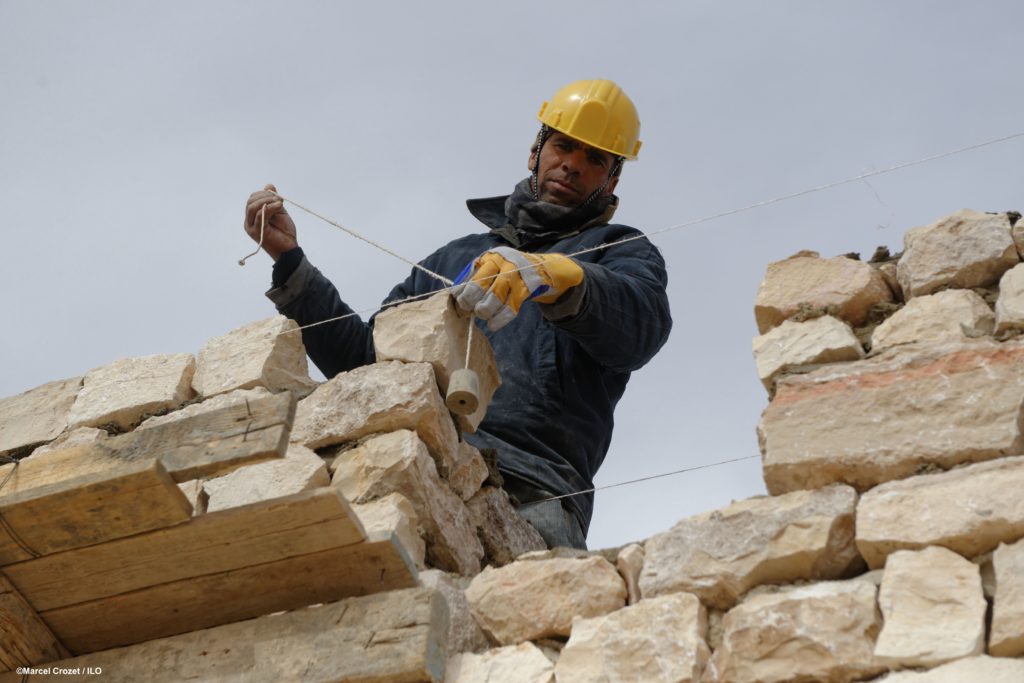
Copyright : Marcel Crozet / ILO
- Despite Tunisia’s advanced social protection system, a substantial portion of the workforce is excluded from coverage and left vulnerable, unable to claim their constitutional rights to health and social assistance.
- Over 40% of Tunisia’s workforce is informal, and these informal workers experience significant differences in characteristics and situations, meaning that one-size-fits-all policies will fail in the face of a diverse informal workforce.
- Though the informal workforce is present all across Tunisia, higher rates are found particularly outside of Tunis, among lower wage workers, workers with lower levels of education, and those who occupy part-time, seasonal, and occasional jobs. Some sectors such as agriculture, fisheries and construction are more prone to informal employment.
- Efforts to extend social protections to informal workers should seek to eliminate gaps and barriers in the current system, including the linking of coverage to employment, the complexity of requirements necessary for coverage, and the precarity of informal workers employed at formal enterprises.
To read the report: click here
Disclaimer: Except for articles published on Blog Tadamon and the content of the resource pages, all materials on this website, including their respective photographs, are indexed from their original sources. All rights remain with the respective copyright holders.

Comments are closed, but trackbacks and pingbacks are open.